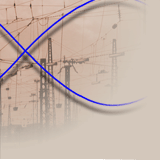American Guru: A Story of Love, Betrayal and Healing:Former Students
of Andrew Cohen Speak Out, by William Yenner
Epigraph Books, 2009, 170 pp., £10.37, p/b ISBN: 0982453051
11 Days at the Edge, by Michael Wombacher
Findhorn Press, 2008, 512 pp., £11.69, p/b ISBN: 1844091368
What is enlightenment? (That is, enlightenment of the kind pursued
by the Buddha, rather than the Western philosophical movement.) This
question has occupied me for over thirty years, so I was interested
to receive two books about Andrew Cohen, the American guru and founder
of What Is Enlightenment? magazine (now re-launched as EnlightenNext
magazine). The first book, by William Yenner, is a compilation of writings
from ex-students of Cohen lambasting him as a failure and fraud, while
the second book is the account by an enthusiastic student of a Cohen
retreat held in 2005. The first book is a short and easy read, while
the latter is long and will probably only appeal to the hardened aficionado
of such literature. When discussing the project with Cohen Wombacher
told him that the two books that had left the greatest spiritual impression
on him were Irina Tweedie’s Daughter of Fire and Nisargadatta
Maharaj’s I Am That. Wombacher’s book is indeed
in that tradition, and I would add one more: The Gospel of Ramakrishna.
These works all give a day-by-day account of life with the guru, though
of course the question posed by Yenner’s book is whether Cohen
should be included amongst the ranks of ‘respectable’ gurus
or not. Yenner was with Cohen for thirteen years, and his book is perhaps
the third serious work to attempt to debunk Cohen, the first and most
remarkable of which is the one by Cohen’s own mother (Luna Tarlo),
called – with superb irony – Mother of God. Yenner’s
book includes an interview with Tarlo, and sections by other disaffected
students. Right at the outset Yenner states that he joined willingly,
but his commitment turned into an ‘enforced enlistment in the
service of an individual bent on total control.’
Yenner sets out the questions at the heart of the guru phenomenon,
including: ‘What is the nature of enlightenment, and is devotion
to a guru the surest way to attain it?’ The fact is that the guru
principle has not travelled well from its natural environment in the
East to the West. If we turn to seventh-century Hindu sage Shankara,
we find it uncontroversial in his setting for him to state that the
three greatest advantages in life are human birth, the longing for liberation,
and discipleship to an illumined teacher. An examination of the Indian
guru tradition shows that it rarely fell into the controversy that Western
gurus are prone to, but there is a rich Western literature on the failings
of the modern guru. So what are the charges that Yenner levies at Cohen?
Is Cohen merely on a control-trip? Certainly the evidence he puts forward
is compelling, and many people on finishing his book will be persuaded
that Cohen is a fraud. But, on turning to Wombacher’s book –
if one has the patience to complete it – one is left with a quite
different impression. What then can one use to arbitrate between the
two claims effectively put forward in these books?
I would suggest two factors are important here. Firstly, how seriously
does one take enlightenment in the first place? If it is anything less
than a passion, then one might be perfectly safe to accept Yenner’s
warning and have nothing to do with Cohen. On the other hand, if one
finds it a really serious question then one might need to look more
closely at both books. Yenner’s book has a foreword by the well-known
author on Buddhism, Stephen Batchelor, who claims that his early acquaintance
with Cohen led him to foretell that it would all end badly. Yet, if
Cohen is as arrogant and domineering as is claimed, why did he publish
an interview with Batchelor in an issue of What is Enlightenment?
It is clear that the two men have very different views on enlightenment,
but the discussion is courteous, and readers are left to make their
own minds up. Indeed the eighteen years of the magazine provide a resource
for enlightenment unparalleled in the modern world, and, although Cohen
is the editor and appears in articles and interviews, practically every
contemporary voice on the subject has been aired at one time or another.
If one is serious about enlightenment, one would at least have to acknowledge
Cohen’s contribution here.
The second clue comes from Yenner, and, I have to admit it was a surprise
to me. He suggests that we should consider Andrew as a teacher in the
‘crazy wisdom’ tradition, which would include gurus like
Gurdjieff and Rajneesh. I first encountered the term ‘crazy wisdom’
in Georg Feuerstein’s excellent book on gurus, Holy Madness,
but it had never occurred to me to apply it to Cohen. Yenner comes to
the conclusion that ‘crazy wisdom’ gurus are inclined to
apply all kinds of bizarre pressure on their students, but that Cohen,
even if he is to be included alongside such teachers as Gurdjieff, is
‘exceptionally ham-handed’ in wielding authority. Wombacher’s
book shows otherwise, but of course the retreat is effectively a public
forum, and only Cohen’s closer students know what goes in private.
Perhaps Cohen is as arbitrarily cruel as the accounts suggest. From
Cohen’s point of view however, we gather that students like Yenner
are seen as those who can’t take the pressure, and are collectively
labelled the ‘shadow sangha’.
Now, perhaps we are deeply committed to the idea of enlightenment,
but are not drawn to the ‘crazy wisdom’ tradition. Further,
the allegations of bullying by Cohen’s former students –
and mother – suggest to us that he should be discounted as a significant
figure in the field of enlightenment. Is there then anything more than
Cohen’s admittedly ground-breaking magazine series, particularly
for the SMN to be interested in? Wombacher’s book illustrates
what this could be. It is Cohen’s insistence on evolution.
Cohen was invited to speak at the SMN Mystics and Scientists conference
in 2004, but, as I recall, said little about this, concentrating instead
on an account of his own ‘awakening’. His presentation seemed
to divide the conference almost equally for and against him, but the
relation of his thought to evolutionary science and the work, for example
of Teilhard de Chardin, got lost. However in Wombacher’s book
this issue crops up again and again. (I have to admit being divided
over the question, for example how is it possible that enlightenment
has ‘evolved’ since the time of the Buddha?) Cohen’s
own spiritual lineage is through his master Poonjaji to the world-renowned
Ramana Maharshi, and mingles perhaps with his Judaic heritage. Hence
in a dialogue with Rupert Sheldrake (an extract of which can be found
on You Tube) the question of evolutionary telos is explored
in both scientific and East-West religious terms. In this and other
sources we glimpse the possibility that Cohen’s thesis is both
deeply considered and significant for our time. Wombacher’s book
gives many examples of where the implications of evolutionary enlightenment
are worked out on the spiritual path that Cohen teaches.
In conclusion I would say that these two books between them pose a
problem worthy of attention. If Cohen were only a guru with some disgruntled
former students, the issue would be of little interest. But, because
of his magazine series, and because of his exploration of evolutionary
enlightenment, we are left with this question: does his brilliance in
reframing enlightenment in the modern context suggest we should have
sympathy with discontented students but somehow ignore them in considering
his work, or do their complaints suggest that we should discount the
work as the product of a deeply flawed man?


